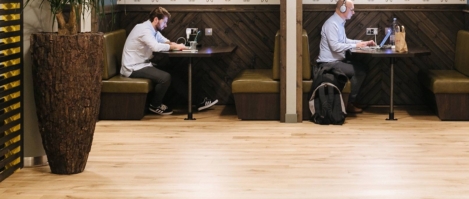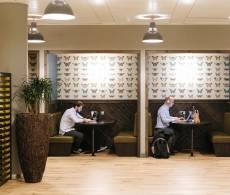November 27, 2015
Over a third of UK workers are miserable at work and most plan to leave 0
 Only 35 percent of UK workers are happy with their job, and over a third (39 percent) admit that they feel miserable at work. In a new survey by Workwear Express of over 1,000 people, just 14 percent said they planned to stay in their current job for the next year. This appears to be reflected in the amount of sickness they take, with 25 percent admitting that they’ve taken sick leave from work due to being so unhappy. Poor management was seen as the biggest contributor to an employee’s low sense of satisfaction at work, as just over 31 percent of those polled agreed that being badly managed was their biggest issue in the workplace. However, having a heavy workload was a close second, with 29 percent of people citing this as the reason for their unhappiness. A third (35 percent) of those polled said that Monday was the most miserable day of the week to work.
Only 35 percent of UK workers are happy with their job, and over a third (39 percent) admit that they feel miserable at work. In a new survey by Workwear Express of over 1,000 people, just 14 percent said they planned to stay in their current job for the next year. This appears to be reflected in the amount of sickness they take, with 25 percent admitting that they’ve taken sick leave from work due to being so unhappy. Poor management was seen as the biggest contributor to an employee’s low sense of satisfaction at work, as just over 31 percent of those polled agreed that being badly managed was their biggest issue in the workplace. However, having a heavy workload was a close second, with 29 percent of people citing this as the reason for their unhappiness. A third (35 percent) of those polled said that Monday was the most miserable day of the week to work.



































November 18, 2015
Women earn less than men because they make different choices, report confirms 0
by Mark Eltringham • Comment, News, Workplace
(more…)